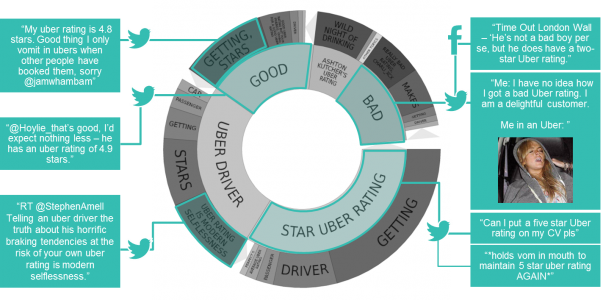As of a week ago I was the proud bearer of a 4.8 Uber rating – a score I had established through impeccable passenger manners over 2 years of cabbing around London. However, come 3:34am on Saturday 30th September this outstanding reputation was to be shattered by the mixing of an intoxicated mate, inadequately wrapped kebab with far too much garlic sauce and some speed bumps.
After accepting that covering someone’s backseat in kebab would have a detrimental impact on my rating, I thought back to when you were considered a good customer simply for paying and how it is now relatively commonplace for customers to be rated by service providers.
The likes of Uber, Airbnb and eBay have fully embedded customer ratings as the norm and it has proven an effective system at enforcing behaviour. The Foresight Factory’s analysis of social conversation shows how a good Uber rating is both desirable and has a direct impact on good behaviour, or in other words, encourages only vomiting in Ubers other people have booked…

Customer rating systems can, therefore, work as a powerful behavioural incentive for brands. If done correctly, consumers’ realisation that their interactions define how they are treated by a brand could encourage them to actively change their behaviour to receive discounts or exclusive experiences in return.
A good example of the application of this model comes from the car insurance market. Using telematic tools to rate how their customers are driving, insurers have started incentivising safer driving with lower premiums. It could also be used in the financial services sector to help those with a poor credit rating to take out a loan by generating ratings from alternative data sources.
Could this system work as an incentive for your brand?



